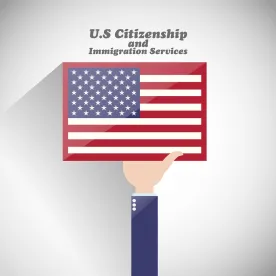Long USCIS processing delays are now the norm for all types of immigration cases. Indeed, the delays have reached crisis levels. Processing times increased by 46% over the past two fiscal years and 91% since FY 2014.
In fact, even though applications declined by 17% in FY 2018, processing times continued to rise. In some cases, H-1B petitions can take up to a year for a decision. I-140 immigrant visa petitions that used to take about 3 months to process are now taking about 8 months. Naturalization cases used to process in 5 months, but now they are taking about 10 months.
These delays have important consequences. U.S. businesses are hurt when they cannot obtain work visas for necessary or key employees in a timely way. Foreign-national employees become disenchanted due to their inability to obtain LPR status and may leave the U.S. for better prospects. Families suffer economically when dependents cannot obtain work authorization. Vulnerable populations suffer when they cannot obtain protection under U.S. immigration laws.
Recent changes in immigration policies based upon the “Buy American, Hire American” executive order are contributing to the delays.
-
The fact that USCIS no longer grants deference to prior determinations means that even extensions of stay require complete re-adjudications.
-
The 2017 institution of interviews for all employment-based green card cases has created substantial backlogs.
-
Agency policies that have led to a dramatic rise in RFEs mean that USCIS officers must adjudicate cases twice.
-
The Administration’s focus on enforcement has diverted resources from adjudication.
-
Suspensions of premium processing have made it impossible to speed up adjudications even in the most desperate cases.
In a May 13, 2019, letter to the Director of USCIS questioning the delays, 36 members of Congress (representing both parties) pointed out that USCIS was created “to be a service-oriented, immigration service agency with the mission to adjudicate immigration matters to enable individuals to obtain work authorization, citizenship, humanitarian protection and other important services.” But the new mission statement issued by USCIS in early 2018 no longer emphasizes customer satisfaction but rather focuses on enforcement.
The May 13 letter is not the first time Congress has asked about the processing delays. The last letter on this subject sent to the Director earlier this year, however, came only from Democrats.
Along with Congress, the American Immigration Lawyers Association is working to hold USCIS accountable.




 />i
/>i

